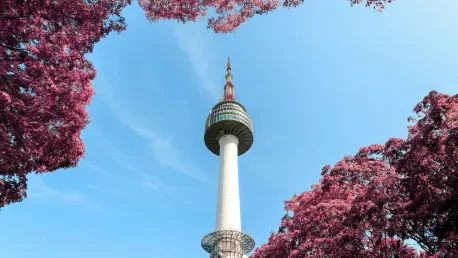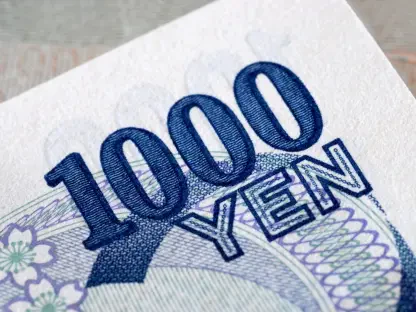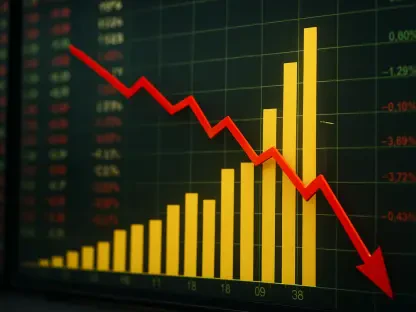In a world where global supply chains are battered by geopolitical tensions, rampant inflation, and unpredictable policy shifts, investors are scrambling for safe harbors in the consumer goods sector. South Korea’s extraordinary industrial ascent, particularly under the pioneering guidance of Hyundai’s founder Chung Ju-Yung, offers a compelling roadmap for identifying consumer staples stocks that can weather these storms and provides a blueprint for resilience. This journey from economic underdog to global powerhouse reveals strategies of resilience that remain strikingly relevant. By examining how South Korea turned adversity into strength, especially during crises like the 1997 Asian Financial Crisis, a blueprint emerges for spotting undervalued companies with the grit to endure today’s market chaos. The focus here is on distilling historical wisdom into practical insights for building robust investment portfolios.
The narrative of South Korea’s transformation is not just a history lesson but a strategic guide for navigating current economic turbulence. As supply chain disruptions continue to challenge businesses worldwide, consumer staples—those essential goods that maintain demand even in downturns—stand out as a defensive bastion. Drawing parallels between South Korea’s industrial tactics and the operational models of modern firms reveals how timeless principles like frugality, innovation, and adaptability can fortify companies against volatility. This exploration aims to uncover how these lessons translate into actionable criteria for selecting stocks that promise stability and growth amidst uncertainty.
Historical Blueprint for Modern Resilience
Unpacking South Korea’s Economic Fortitude
South Korea’s rise as an industrial titan, propelled by visionaries like Chung Ju-Yung, serves as a powerful example of enduring through economic hardship. During periods of intense financial strain, such as the late 20th-century regional crisis, Hyundai didn’t merely survive but thrived by implementing stringent cost-saving measures without stifling progress. Tactics like reusing materials and minimizing waste were paired with an unwavering commitment to future-focused projects, leading to significant advancements in areas like sustainable energy. This balance of thrift and ambition offers a critical lesson for today’s investors: companies that maintain strict operational control while keeping an eye on long-term goals are better equipped to handle market shocks. Such historical resilience highlights the importance of seeking out consumer goods firms that prioritize efficiency alongside strategic vision.
The impact of South Korea’s disciplined approach extends beyond mere survival, shaping a model of recovery that modern markets can emulate. Hyundai’s ability to rebound from economic downturns with stronger revenue streams, particularly in innovative sectors, underscores the value of perseverance. For investors, this translates into a focus on consumer staples companies that demonstrate a similar knack for turning challenges into stepping stones. Firms that cut unnecessary expenses while channeling resources into meaningful growth initiatives often emerge as leaders in volatile environments. This historical perspective emphasizes that resilience is not just about weathering the storm but about positioning for a stronger future, a principle that can guide stock selection in today’s unpredictable landscape.
Adapting Past Strategies to Present Challenges
South Korea’s industrial playbook, forged in times of scarcity, provides actionable insights for addressing current supply chain disruptions. The meticulous cost management that defined Hyundai’s approach during financial crises is a tactic that resonates with today’s need for lean operations in the face of rising costs and logistical bottlenecks. Investors should seek out consumer goods companies that mirror this frugality, maintaining robust balance sheets even as external pressures mount. Beyond mere survival, South Korea’s history shows that strategic foresight—investing in core strengths during downturns—can yield substantial returns. This dual focus on efficiency and forward-thinking offers a lens through which to evaluate modern firms for their potential to endure and prosper.
Moreover, the adaptability displayed by South Korea’s industrial giants during times of crisis serves as a benchmark for identifying resilient stocks today. Hyundai’s pivot to new technologies amidst economic hardship parallels the need for consumer staples companies to innovate in response to shifting market demands, such as sustainability and digital integration. This historical adaptability suggests that firms capable of evolving their business models without losing core stability are prime candidates for investment. By looking at how South Korean industries balanced immediate needs with long-term innovation, investors gain a clearer picture of which companies are likely to navigate today’s uncertainties successfully. This approach underscores the timeless relevance of resilience as a cornerstone of sound investment strategy.
Key Principles for Identifying Strong Consumer Stocks
Operational Discipline as a Foundation
One of the most enduring lessons from South Korea’s industrial success is the critical role of operational discipline in building lasting strength. Hyundai’s rigorous cost-cutting under Chung Ju-Yung, exemplified by measures as simple as double-sided printing and resource repurposing, laid the groundwork for survival during economic turmoil. This ethos is mirrored in contemporary giants like Walmart, where efficiency drives low operating costs and consistent shareholder returns through steady dividends. For investors, this principle translates into a preference for consumer staples companies with lean structures and financial prudence. Metrics such as a low price-to-earnings ratio often indicate a firm’s ability to maintain stability when markets falter, making them a reliable anchor in a diversified portfolio.
Another facet of operational discipline is the capacity to sustain profitability under pressure, a trait South Korea’s industrial leaders mastered through relentless focus on essentials. Modern companies that emulate this approach, by streamlining supply chains and minimizing overhead, position themselves as safe bets during economic downturns. Unlike sectors prone to wild swings, consumer staples benefit from consistent demand, and those with tight fiscal controls are less likely to buckle under external shocks like inflation or trade disruptions. Investors should prioritize firms that demonstrate this kind of operational restraint, as it signals a resilience akin to that of South Korea’s storied industrial recovery. Such companies often provide a buffer against volatility, ensuring portfolios remain grounded even in choppy waters.
Innovation and Strategic Reinvestment
South Korea’s industrial triumph was not built on cost-cutting alone but on a strategic reinvestment of savings into research and development (R&D), a practice that remains vital for modern consumer goods firms. Hyundai’s bold moves into pioneering areas like hydrogen fuel cell technology during lean times set a precedent for how innovation can secure future growth. This mirrors the approach of companies like Procter & Gamble and Clorox, which allocate substantial portions of revenue—often between 10-13%—to develop sustainable packaging and digital supply chain solutions. For investors, this commitment to R&D signals a company’s readiness to adapt to evolving consumer needs and market challenges, making such stocks attractive for long-term defensive strategies.
Equally important is the way innovation acts as a shield against obsolescence, a lesson drawn from South Korea’s proactive industrial policies. Companies that consistently invest in new technologies and processes, much like Hyundai did with green initiatives, are better positioned to capture emerging opportunities while mitigating risks from disruption. In the consumer staples sector, this might mean adopting AI-driven logistics or eco-friendly product lines that appeal to shifting demographics. Investors should seek out firms with a proven track record of reinvestment, as this forward-thinking mindset often correlates with sustained growth and market relevance. By focusing on such innovators, portfolios can balance stability with the potential for incremental gains over time.
Ethical Leadership and Global Reach
A defining feature of South Korea’s industrial resilience was the emphasis on ethical leadership, a principle that fostered trust and stability within organizations like Hyundai. Chung Ju-Yung’s philosophy of treating employees as partners cultivated loyalty and continuity, a model reflected in modern firms with high retention rates and transparent governance practices. This approach ensures operational smoothness during crises, as a committed workforce can drive recovery and maintain productivity. For investors, consumer staples companies with strong ethical frameworks are less likely to face internal disruptions or reputational risks, offering a layer of security that complements financial metrics in stock evaluation.
Additionally, the strategic importance of global diversification, as demonstrated by South Korea’s industrial outreach, cannot be overstated in today’s interconnected markets. Companies like Coca-Cola and Ambev mitigate localized risks by maintaining a broad international presence, leveraging platforms like AI-driven logistics to tap into emerging markets. This global footprint echoes Hyundai’s foresight in expanding beyond domestic borders to cushion against regional downturns. Investors should favor firms with diversified operations and adaptable strategies, as these traits provide a hedge against geopolitical or economic shocks in any single market. Combining ethical governance with worldwide reach creates a potent formula for resilience, guiding the selection of stocks that can thrive amidst uncertainty.









